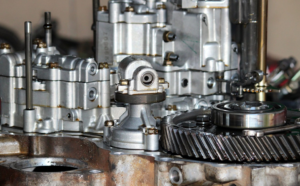Your car’s engine light is not just a mere indicator; it’s a messenger, and it’s trying to tell you something important. Ignoring it might seem convenient in the short run, but in the long term, it can cost you a substantial amount of money. In this blog, we’ll explore how ignoring four of the most common check engine light problems can significantly reduce your gas mileage and result in unnecessary expenses.
The Cost of Ignoring Check Engine Light Problems
Imagine a scenario where you’re driving your car without addressing the check engine light issues. You might be surprised to learn that this decision could lead to a staggering 45% reduction in your gas mileage, costing you an average of $1,400 or more each year. Let’s break down the impact of ignoring these problems.
- Oxygen Sensor Replacement (Up to 40% Fuel Savings Loss)
The oxygen sensor plays a crucial role in monitoring the oxygen levels in your car’s exhaust gases. If it’s faulty and you don’t address it, you could lose up to 40% of your fuel efficiency. For the average British Columbian driving 13,000 km a year with a car that consumes 6.5 liters per 100 km, this translates to over $900 in extra fuel costs annually.
- Loose or Missing Gas Cap (0.5% Decrease in Gas Mileage)
A seemingly minor issue like a loose or missing gas cap can lead to the evaporation of gallons of gas each year. While the decrease in gas mileage is small (0.5%), it’s still money down the drain.
- Catalytic Converter Replacement (Gradual Fuel Consumption Loss)
The catalytic converter often fails due to neglected related parts, such as spark plugs. Ignoring this problem can result in gradual fuel consumption loss and even lead to your car breaking down. Repairing or replacing a catalytic converter can cost over $1,000, not to mention the environmental implications if it doesn’t meet EPA criteria.
- Ignition Coil Replacement (Up to 20% Fuel Efficiency Loss)
The ignition coil, vital for spark plug performance, can fail due to various factors. If it does, you could experience a reduction in fuel economy by up to 20%. Ignoring this issue is not only costly but also detrimental to your car’s overall performance.
- Mass Air Flow Sensor Replacement (10% to 25% Fuel Efficiency Loss)
The mass air flow (MAF) sensor plays a pivotal role in regulating air intake for combustion. If it’s not repaired when needed, it can lead to a significant decrease in fuel economy, ranging from 10% to 25%.
In the world of automotive maintenance, ignoring check engine light problems is akin to ignoring your own health issues. It might save you a few dollars in the short term, but the long-term consequences are far more expensive and detrimental. When you consider the collective impact of these common problems, you could be looking at a staggering 95.5% reduction in gas mileage.
To put it in perspective, that’s nearly all of your fuel efficiency gone to waste, along with your hard-earned money. So, the next time your check engine light comes on, don’t dismiss it as a minor annoyance. Instead, see it as an opportunity to address potential issues promptly and save yourself from unnecessary fuel expenses and costly repairs. Join the Supertech Auto family, starting with an oil change and a free expert courtesy inspection to ensure your car’s health and your wallet’s well-being.


